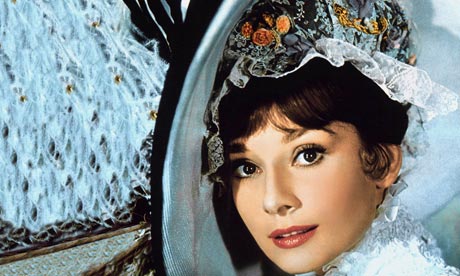 Divine orchestration--different themes in my life collide, and then mix and mature and grow into something that I can better understand bit by bit.
Divine orchestration--different themes in my life collide, and then mix and mature and grow into something that I can better understand bit by bit.
I am reading Works of Love for one of my classes. Something Kierkegaard said stuck with me and I think it's part of the huge melting pot that is my life at the moment:
"There is no word in human language, not a single one, not the most sacred word, of which we could say: when a man uses this word, it is unconditionally proved that there is love in him." (1)
Saying, "I love you," is not magic.
There's nothing to prove that you mean what you say. I think that I already knew that, but I think that subconsciously I expected that there was some magic word. Somewhere out there. Some word that could prove without a doubt, that would speak to the soul of the other person and give you an assurance of who they are and what they think and where they stand. I think it's the legacy of the Disney Princess:
"I know you, I walked with you once upon a dream."
"So this is love."
You get the gist.
There isn't a word.
Last weekend, I drove to Pittsburgh to see My Fair Lady with some friends. It ached and hurt not to belt out all the words to every song. Because yes, I know every word to every single song. My Fair lady is the stage production of Pygmalion. In a nutshell, an arrogant English language specialist takes on the challenge of teaching a cockney flower girl to speak and then passing her off as a princess.
 Her fiery personality strikes his cold remoteness--flint and tinder. She falls furiously in love and teaches her teacher to overcome his arrogance. A pretty classic story--beautiful no matter how many times it's told.
Her fiery personality strikes his cold remoteness--flint and tinder. She falls furiously in love and teaches her teacher to overcome his arrogance. A pretty classic story--beautiful no matter how many times it's told. Eliza tries to replace her Professor with Freddie, a rich suitor with an impressive voice, an impressive vocabulary and a less than impressive ability for anything else. Eliza tries to communicate to him what she wants--Freddie completely misses the point.
Freddie: Speak and the world is full of singing
And I am winging higher than the birds
Touch and my heart begins to crumble
The heavens tumble
Darling, and I'm...
Eliza: Words, words, words!
I'm so sick of words
I get words all day through,
First from him, now from you,
Is that all you blighters can do?
Don't talk of love lasting through time
Make me no undying vow
Show me now!Eliza knows quite keenly that there is no word Freddie could speak to her that would sufficiently convince her that he loved her, that he knew her, that he understood her. She demands that he act, and prove himself with an action, in place of a word. Kiss me. Hold me. Love me. Now.
There isn't an action.
I think Kierkegaard would probably say that there is not an action either:
"not a single one, not the most sacred [action] of which one could say: when a man [does this], it is unconditionally proved thereby that there is love in him." (2)At the end, Eliza furiously accosts Professor Higgins, berating him for treating her like an experiment instead of a person with feelings and a heart that can hurt.
She accuses him first of just wanting her for her day-to-day usefulness: "You want me back to pick up your slippers ... and put up with your tempers and fetch and carry for you."
 And then for her usefulness as a linguistic experiment: "Well, you have my voice on your gramophone. When you feel lonely without me, you can turn it on. It has no feelings to hurt."
And then for her usefulness as a linguistic experiment: "Well, you have my voice on your gramophone. When you feel lonely without me, you can turn it on. It has no feelings to hurt." Higgins finally responds: "Well, I can't turn your soul on."
His words cut to the heart. He doesn't want a recording of her voice. He doesn't want a maid to serve him. He wants her. Her soul. Herself.
This all comes down to the fact that a person is more than a compilation of words and actions. There's a someone, a person, a you, and an I, behind those words and actions.
But if there is no word and no action that can prove love absolutely and can really show another person where you actually stand, what then? Communication becomes an "inconvenient" middle step. When the point of communication is to show soul to soul, using actions and words to relate oneself to another person is an annoying middle step. Sometimes, you just want to be seen for yourself, with no in between, no middle step.
But the middle step is necessary, according to Kierkegaard.
"Yet because of this, one should not repress the words, any more than one should hide visible emotion when it is genuine, for this can be just as unkind a wrong as holding back from a man what is due him. Your friend, your beloved, your child, or whoever is the object of your love, has a claim upon its expression also in words when it really moves you inwardly. The emotion is not your possession, but the other's. The expression of it is his due, since in the emotion you belong to him who moves you and makes you conscious of belonging to him. When the heart is full, you should not grudgingly and loftily, short-changing the other, injure him by pressing your lips together in silence; you should let the mouth speak out of the abundance of your heart." (3)
The middle step hurts.
Because we have bodies and we have to use words and actions to communicate ourselves to other people, we also have to suffer through the mistakes, the misspoken words, the actions that were not intended. Eliza and the professor suffered through so much to finally find the common ground, the moment where they could realize they just needed each other. We have to suffer through so many burdens to try and truly communicate ourselves to other people. No magic words. No magic actions. No instant fixes. Nothing that can immediately allow ourselves to see or be seen.
I think that's part of the burden and glory of being human.
----------------------------------------------------------------------------------------------------------------
 Evelyn Hildebrand
Evelyn HildebrandI love people - it fascinates me that it's impossible to really completely know another person. There's always uncharted territory. I love the ocean - the power that pulls you into a rising wave, the clean, clear curve, the pounding crash when the bubbly crest of a wave hits you feet as you dive straight through. I love paint - on canvas. On mason jars. On newspaper. On my hands.
----------------------------------------------------------------------------------------------------------------
(1) Kierkegaard, Works of Love, _.
(2) Kierkegaard, Works of Love, _.
(3) Kierkegaard, Works of Love, _.



1 comments
Evelyn, this is beautiful. Thank you for putting into words something that I can definitely relate to and have been rebelling against for the last few months :)
ReplyDeleteNote: Only a member of this blog may post a comment.